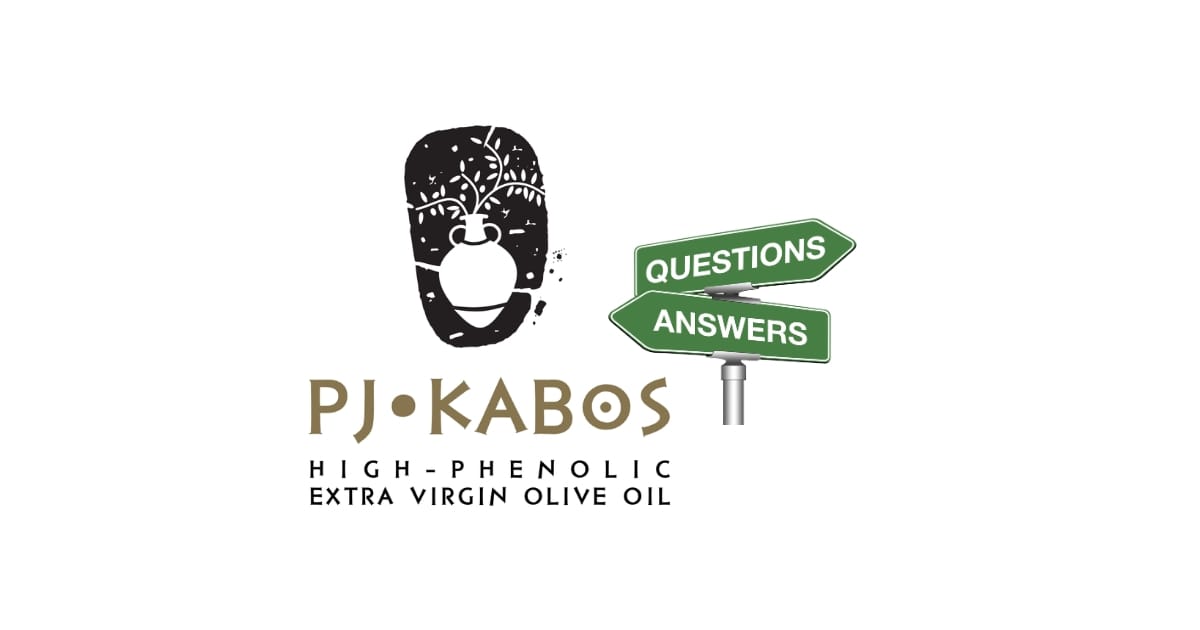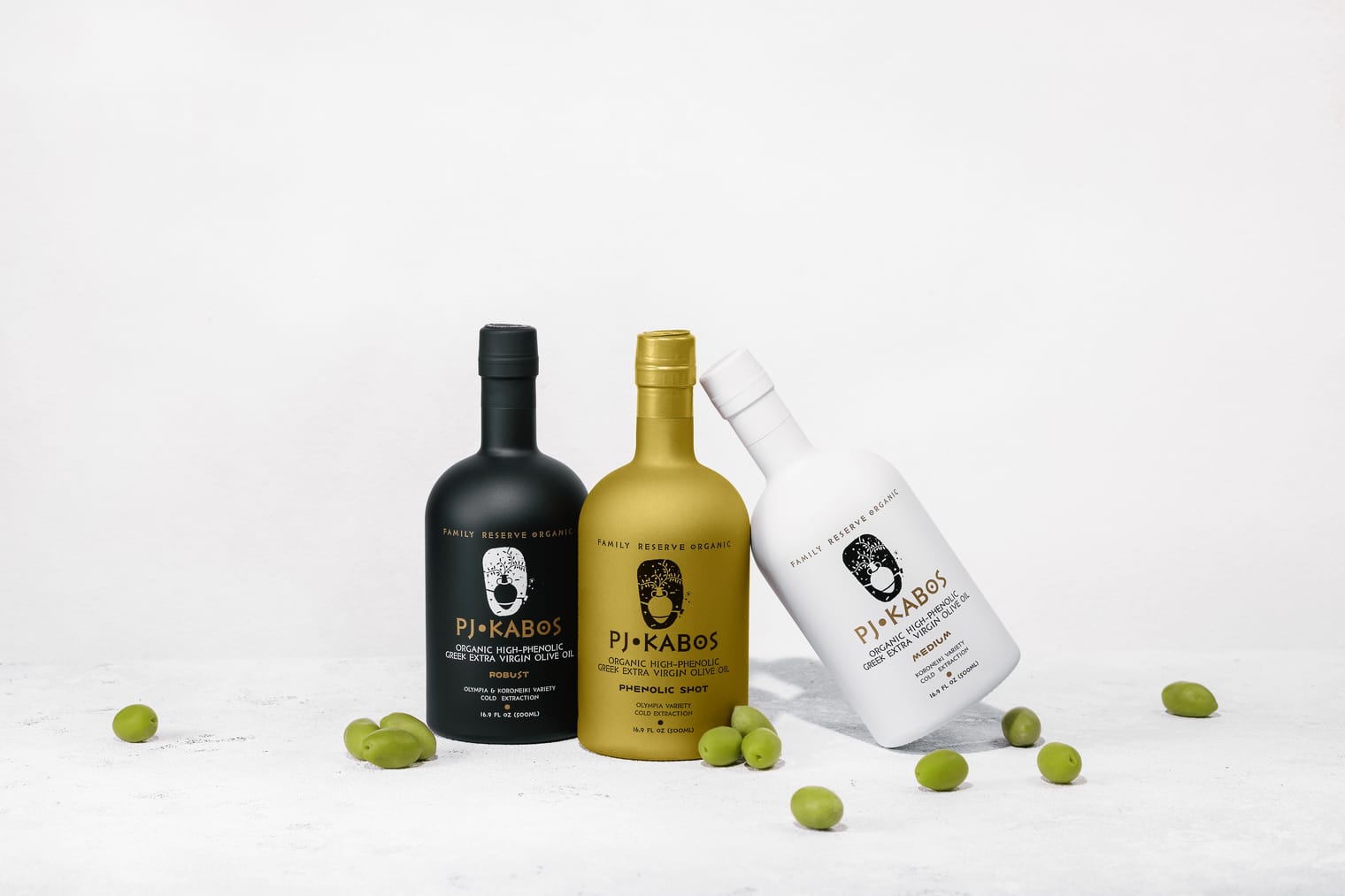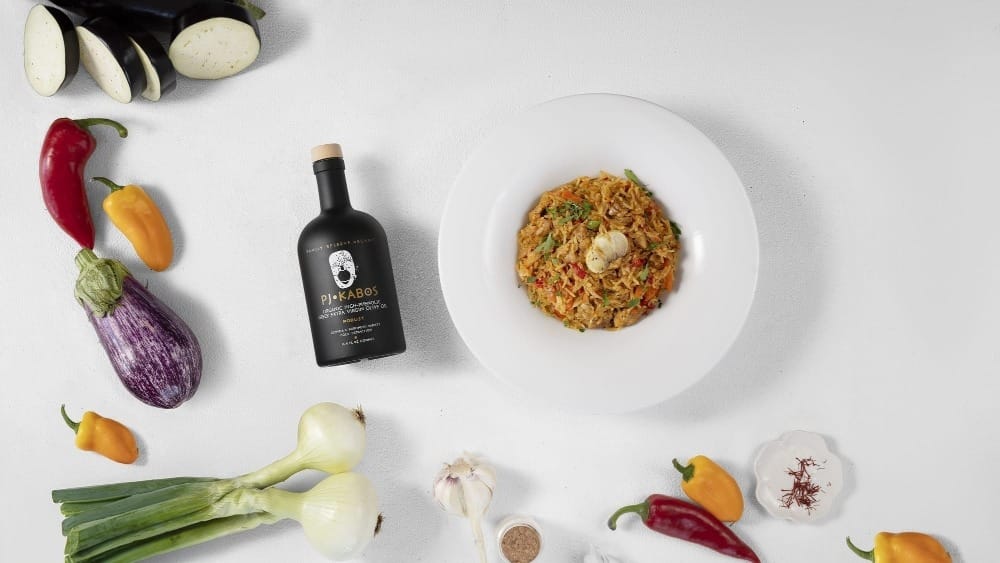Answer: Definitely yes! Olive oil is safe for sautéing, particularly high-phenolic extra virgin olive oil (EVOO), which excels in both flavor and health benefits when used in this cooking method. But let's look into this a bit more.
Okay, so what is sautéing?
Sautéing is a technique that involves quickly cooking food over medium heat using a small amount of fat, like oil, in a pan. While the modern practice of sautéing is closely linked to French culinary traditions, its origins likely date back to ancient times around the world—China, Egypt, Greece, Roman, etc.—evolving as cooking with pans and oils became more widespread across different cultures.
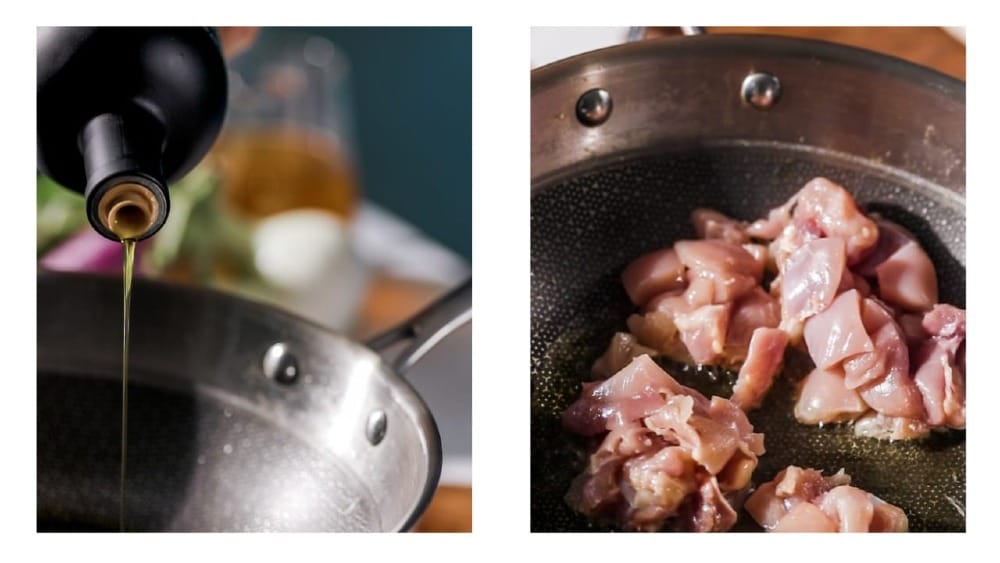
The word, sauté, comes from the French term sauter, meaning "to jump," which describes the movement of food as it cooks. When you sauté, you may use a spoon or spatula to keep the food moving, or you might "flip" the food by tilting and jerking the pan, causing the food to momentarily "jump" off the surface. Moving the food around the pan prevents it from sticking or burning while cooking evenly. The goal is to lightly brown the food on the outside while maintaining moisture inside.
How to sauté?
As shown in the video above, to sauté, a small amount of oil is heated in a pan over medium heat. Once the oil is hot—but not smoking—food—typically cut into small, bite-sized pieces for even cooking—is added to the pan. The key to successful sautéing is keeping the food…well…jumping!
The temperature used for sautéing typically ranges from 320°F to 400°F (160°C to 205°C), which is well within the safe range for extra virgin olive oil. EVOO’s smoke point is generally between 350°F and 410°F, depending on the quality, making it ideal for sautéing.
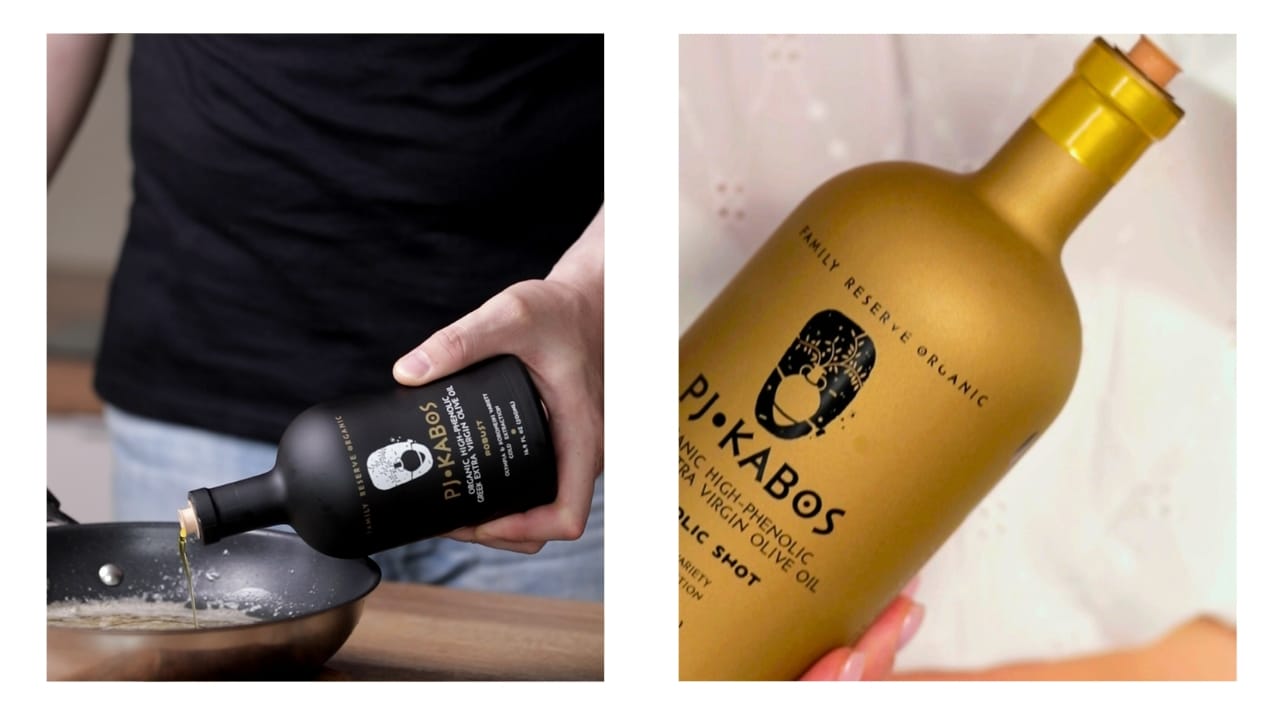
Note: During the quick process of sautéing you may occasionally reach up to 400°F, especially if browning food, but you're constantly moving the food to prevent burning so it is not a constant 400, but rather consistently being cooled by the movement.
This method of frying is quick, usually taking just a few minutes—for example, vegetables might take around 5 minutes, while meats like chicken or shrimp may need slightly longer, around 6 to 10 minutes.
The bottom line:
Sautéing with EVOO is an excellent choice not only because it can handle medium heat well but also because of its nutritional advantages. Extra virgin olive oil contains antioxidants and polyphenols, which protect the fat from breaking down or oxidizing during cooking. Stability under heat is a very important point and something to consider when thinking about using other types of oil. This means you can sauté with EVOO without worrying too much about losing its health benefits. While the oil's quality may degrade slightly after prolonged exposure to high heat, it remains far more stable and produces fewer undesirable by-products compared to other oils and fats. This makes EVOO both a safe and healthy option for cooking in this manner.
Cooking with EVOO
"EVOO has several advantages over other vegetable oils used in cooking. Its fatty acid profile and minor constituents keep the oil stable under high temperatures. By absorbing the oil, the cooked food is likewise protected from oxidation and enriched with EVOO health-promoting bioactive compounds. Finally, food bioactive compounds become more bioavailable upon migration to the oil." [1]
Some of the "minor constituents" referred to in the above quote from "Science Direct" and the article, Cooking with Extra-Virgin Olive Oil: A Mixture of Food Components to Prevent Oxidation and Degradation, are the small but important compounds that are present in lower concentrations compared to the main components (like fatty acids). These include Polyphenols, Tocopherols, Phytosterols, Squalene, etc. These play a critical role in EVOO's stability under heat by protecting the oil from oxidation and degradation. Even though they are present in smaller amounts, they contribute significantly to EVOO’s ability to withstand cooking temperatures and offer health benefits.
An extremely important conclusion was drawn by researcher in this article, Domestic Sautéing with EVOO: Change in the Phenolic Profile, found the National Library of Medicine, Pubmed Central, that specifically concerns sautéing foods and phenolic compounds:
"Temperature degraded the polyphenols of EVOO during the sauté cooking process, whereas time had an effect on some individual phenols, such as hydroxytyrosol, but not on the total phenol content. The polyphenol content decreased by 40% at 120 °C and 75% at 170 °C compared to raw EVOO. Conclusions: Cooked EVOO still meets the parameters of the EU’s health claim." [2]
This is huge. This means that even sautéed foods meet the requirements of the EU health claim for certain phenolic compounds to do much good for our bodies.
So, ask the question again...
Question: “Is olive oil safe for sautéing?”
Answer: Yes, olive oil is not only safe for sautéing, but when you consider all the key factors—health benefits, taste, stability, smoke point, nutrient retention, versatility, digestibility, sustainability, quality retention, etc.—it is arguably one of the best oils you can use.
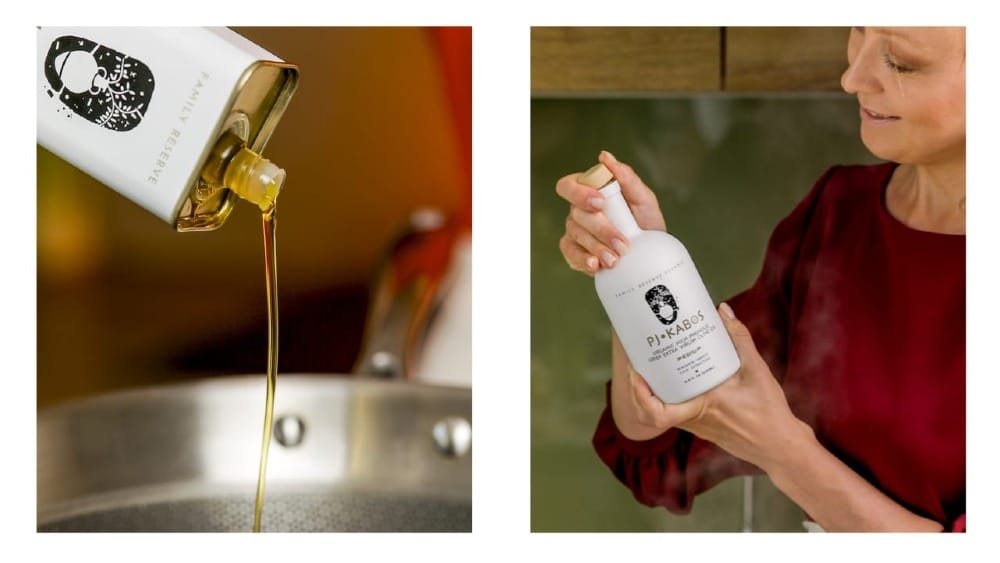
Fresh Harvest 2024/25
High-Phenolic Extra Virgin Olive Oils
from PJ KABOS
PJ Kabos Family Reserve Organic—Phenolic Shot
(Gold Bottle)
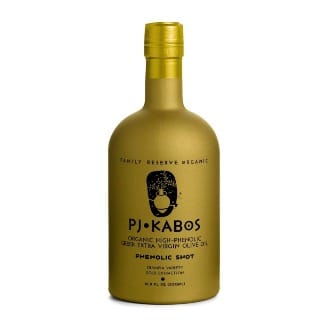
PJ Kabos Family Reserve Organic—"Phenolic Shot," is an award-winning extra virgin olive oil with possibly the highest phenolic content available in a true extra virgin olive oil today. Its intense bitterness and pungency clearly reflect the activity of these polyphenols. Meant to be taken as a shot or may be drizzled over salads, roasted vegetables, toast, fava, etc. to amplify both flavor and health benefits.
PJ Kabos Family Reserve Organic—Robust
(Black Bottle)
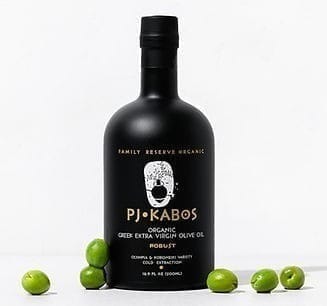
PJ KABOS Family Reserve Organic - Robust, is an extra virgin olive oil that is very high in polyphenols and adds depth, character and great health benefits to every meal.
PJ Kabos Family Reserve Organic—Medium Taste
(White Bottle)
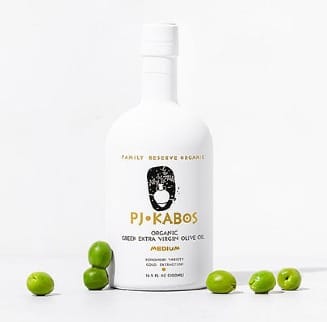
PJ KABOS Family Reserve Organic - Medium, is an extra virgin olive oil that is high in polyphenols and adds a lovely taste and great health benefits to every meal.
PJ Kabos Family Reserve—Medium Taste
(White Tin)
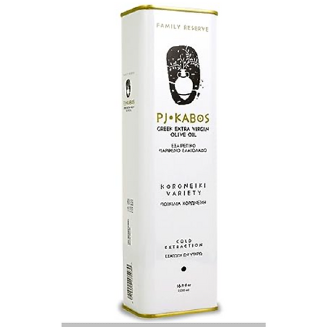
PJ KABOS Family Reserve - Medium, is an extra virgin olive oil in an easy-to-store tin that is high in polyphenols and adds a lovely taste and great health benefits to every meal.
Please enjoy having a look around our websites, pjkabos.com and oliveoil.com, as well as our Amazon Store for more about our many high-phenolic olive oils, recipes, history, etc. And follow along with us on Instagram for photos concerning olive oil production, our groves in Greece, articles about olive oil, family history and more.
PJ Kabos High-Phenolic Extra Virgin Olive Oil: Your Trusted Oil, Straight from Our Table to Yours.
[1] Julián Lozano-Castellón, José Fernando Rinaldi de Alvarenga, Anna Vallverdú-Queralt, Rosa M. Lamuela-Raventós. (May 2022) Cooking with Extra-Virgin Olive Oil: A Mixture of Food Components to Prevent Oxidation and Degradation. Science Direct. Trends in Food Science & Technology. Retrieved October 2024, from https://www.sciencedirect.com/science/article/pii/S0924224422000693
[2] Julián Lozano-Castellón, Anna Vallverdú-Queralt, José Fernando Rinaldi de Alvarenga, Montserrat Illán, Xavier Torrado-Prat, and Rosa Maria Lamuela-Raventós (January 2020). Domestic Sautéing with EVOO: Change in the Phenolic Profile. PMC PubMed Central. https://www.ncbi.nlm.nih.gov/pmc/articles/PMC7022658/

